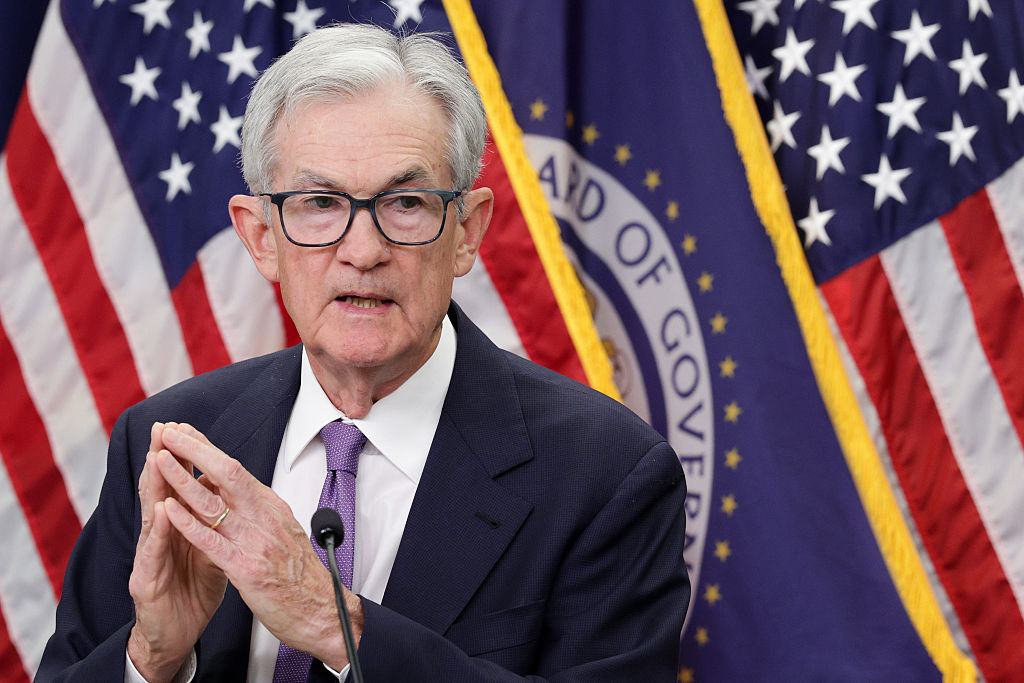Volcker Rule changes: Fed moves to ease limits on risky bank trading
The Federal Reserve is proposing to ease a rule aimed at defusing the kind of risk-taking on Wall Street that helped trigger the 2008 financial meltdown.
The Fed under new leadership on Wednesday unveiled proposed changes to the Volcker Rule, which bars banks' risky trading bets for their own profit with depositors' money. The high-risk activity is known as proprietary trading.
The proposed changes would match the strictest applications of the rule to banks that do the most trading - 18 banks with at least $10 billion in trading assets and liabilities. They account for 95 percent of all U.S. bank trading and include some foreign banks with U.S. operations, Fed officials said.
Less stringent requirements would apply to banks that do less trading. The idea is to make it easier for banks to comply with the Volcker Rule without sacrificing the banks' safety and soundness, the officials said.
"The proposal will address some of the uncertainty and complexity that now make it difficult for firms to know how best to comply, and for supervisors to know that they are in compliance," Fed Chair Jerome Powell said at a meeting of the Fed governors. "Our goal is to replace overly complex and inefficient requirements with a more streamlined set of requirements."
It also would assume generally that a bank is in compliance with the rule if it records $25 million or less in daily profits or losses from each trading desk over 90 days.
The proposal will be opened to public comment for 60 days.
"We believe this is broadly positive for the mega-banks with large trading operations, as well as for regional banks less involved with trading as it should reduce trading costs and permit them to hold more inventory to facilitate trading," Cowen analyst Jaret Seiberg said in a research note.
President Donald Trump has blamed Dodd-Frank for constraining economic growth. When the Fed meets Wednesday, it will propose changes to the Volcker Rule.
Early in his presidency, Mr. Trump had vowed to "do a big number" on Dodd-Frank, a goal supported by many Republicans and the financial industry, which claims the regulations are onerous and burdensome. It's not the first move by the Trump administration to chip away at the Volcker Rule, which earlier this month was eased for smaller banks when Mr. Trump signed the Economic Growth, Regulatory Relief and Consumer Protection Act into law.
That new law exempts banks with less than $10 billion in assets from the rule, while also rolling back other parts of Dodd-Frank.
"One-size-fits-all — those rules just don't work," Mr. Trump said when he signed the bill last week. "And community banks and credit unions should be regulated the same way."
The origins of the rule
The rule is named for Paul Volcker, a Fed chairman in the 1980s who was an adviser to President Barack Obama during the financial crisis. Volcker urged a ban on deposit-funded, high-risk trading by big banks, believing that it would be an effective in averting future economic crises.
There has already been a volley of modifications that unwind the stricter regulations put into place during the Great Recession:
—The Republican-led Economic Growth, Regulatory Relief and Consumer Protection Act, passed with help from some opposition votes, was aimed at especially helping small and medium-sized banks, including community banks and credit unions. It eases oversight and capital requirements (and Volcker Rule compliance) for about two dozen banks falling below new capital thresholds, including BB&T Corp., SunTrust Banks, Fifth Third Bancorp and American Express.
—After Trump installed him in November as acting director of the Consumer Financial Protection Bureau, Mick Mulvaney has shaped the watchdog agency established by the Dodd-Frank law and urged a curb on its powers. He has dropped a lawsuit against a payday lender, targeted agency enforcement powers in anti-discrimination cases and threatened a consumer complaint database. No banks or other financial institutions have been fined or sued since he took over.
The scope of the Fed's proposed revisions to the Volcker Rule is still unclear. The burden could shift from the banks to the regulators to prove that specific types of transactions violate the ban.
Volcker Rule explained
The Volcker Rule banned high-risk activity known as proprietary trading. The practice had become a huge money-making machine for Wall Street mega-banks like Goldman Sachs, JPMorgan Chase and Morgan Stanley. Proprietary trading allowed big banks to tap depositors' money in federally-insured bank accounts — essentially borrowing against that money and using it for investments.
"Weakening the Volcker Rule means allowing banks to play with other people's money again. That was the casino economy before the crisis," says Ed Mierzwinski, a senior director at the U.S. Public Interest Research Group, a consumer advocacy organization
In the years since the rule took effect, banks have been required to trade mainly on behalf of their clients.
"The proprietary trading desks are gone (from the banks) and they're probably not going to come back," says Oliver Ireland, an attorney specializing in banking law at Morrison & Foerster. Ireland was an associate general counsel at the Fed.
Still, big Wall Street banks have pushed against the Volcker Rule.
It can be difficult to identify proprietary trading compared with other key bank activities such as market-making, which is exempt from the ban on proprietary trading. When big banks engage in market-making, they use their own money to take the opposite side of a customer's trade: They buy or sell an investment to help execute the trade.
The Fed is an independent regulator that asserts its separation from political pressure and the White House. Trump, of course, has had the opportunity to put his stamp on the central bank by filling positions on the seven-member Fed board.
The new Fed chairman since February, Jerome Powell, who was a board member under ex-Fed chair Janet Yellen, was an investment banker before he joined the central bank. After Trump named him Fed chief, Powell told Congress that he believes the rules put into place after the 2008 crisis could be improved, though he doesn't completely support the administration's ambition of aggressively rolling back regulations.
Another Trump appointee on the Fed board, investment banker Randal Quarles, is the Fed's top overseer of Wall Street and the leader in seeking to ease financial regulation. He has said the package of rules under Dodd-Frank should be overhauled but not scrapped. The third sitting Fed governor is Lael Brainard, a former Treasury Department official appointed by Obama in 2014.
Trump has named three others to fill vacancies on the board: two economics professors and the Kansas banking commissioner. They await Senate confirmation.



